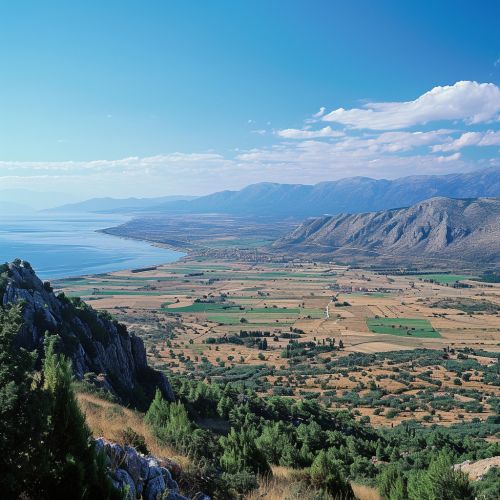Central Macedonia
Geography
Central Macedonia, located in northern Greece, is one of the country's thirteen administrative regions. It is bordered by the regions of Western Macedonia to the west, Thessaly to the south, Eastern Macedonia and Thrace to the east, and shares a northern border with the Republic of North Macedonia. The region is characterized by a diverse landscape, with mountainous areas, fertile plains, and a significant coastline along the Aegean Sea.

Administrative Divisions
Central Macedonia is divided into seven regional units: Thessaloniki, Chalkidiki, Imathia, Kilkis, Pella, Pieria, and Serres. Each of these units has its own unique characteristics and contributes to the overall cultural and economic fabric of the region. The largest and most populous of these is Thessaloniki, which also serves as the capital of the region.
History
The history of Central Macedonia is intertwined with the broader history of Greece and the Balkans. It has been inhabited since prehistoric times and has seen the rise and fall of many civilizations, including the ancient Macedonians, Romans, Byzantines, and Ottomans. The region's rich history is evident in its numerous archaeological sites, historical monuments, and museums.
Economy
The economy of Central Macedonia is diverse and dynamic, with significant contributions from various sectors. The region is a major hub for trade and services, particularly in Thessaloniki, which is one of the largest economic centers in Greece. Agriculture also plays a significant role, with the region producing a variety of crops including wheat, cotton, and tobacco. In recent years, tourism has become increasingly important, with the region's beautiful landscapes, historical sites, and cultural festivals attracting visitors from around the world.
Culture
Central Macedonia is a region rich in culture and tradition. It is home to numerous cultural festivals, traditional music and dance, and a distinctive cuisine that reflects its diverse history and geography. The region is also known for its significant contributions to the arts and literature, with many famous Greek writers, poets, and artists hailing from this region.
